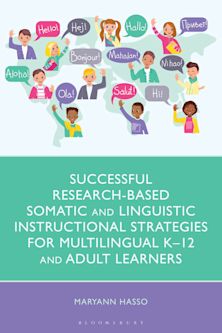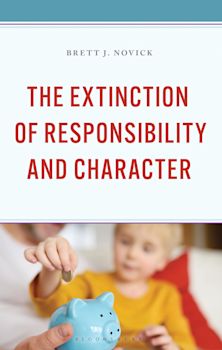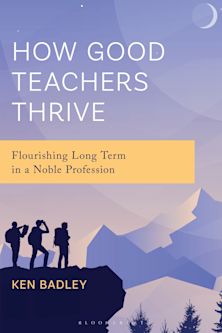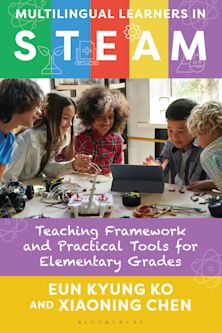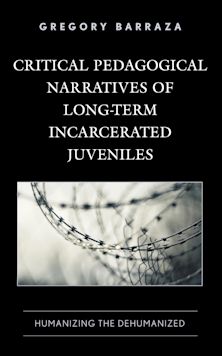- Home
- ACADEMIC
- Education
- Classroom Practice
- Developing the Whole Student
This product is usually dispatched within 3 days
- Delivery and returns info
-
Free US delivery on orders $35 or over
You must sign in to add this item to your wishlist. Please sign in or create an account
Description
This book proposes a new way of categorizing curricula in the holistic educational traditional. This is an idea that goes back in the Western tradition at least as far as Plato, and Lao Tzu in the Eastern tradition. It is certainly present in Spinoza and Schopenhauer. It is called a “holarchy”. The idea of a holarchy gives rise to Integrative Curriculum Theory, which, with major modifications, draws on Ken Wilber’s in his evolutionary model of the development of consciousness at personal, cultural and ontological realms.
Integrative Curriculum Theory will: 1) Prove a useful addition to the holistic repertoire of systematic and, above all, humane terminologies and “technologies” for making and evaluating specific curricula as well as for theorizing the curriculum at a time when “scientistic,” “technist” and profit-driven views of education have commandeered the podium, policy, and praxis and 2) address some areas of concern that with certain holistic models of education, and 3) address some problems in Wilber’s integral model of psychological, cultural, and spiritual evolution.
Table of Contents
Acknowledgments
Introduction: Holistic Education in a New Key
PART A: A Primer of Integrative Theory
Chapter 1: On Subjectivity and Objectivity in Integrative Educational Theory
Chapter 2: Features and Advantages of an Integrative Model
Chapter 3: The Hierarchic, Item-and-Process, and Pie-Chart Models
Chapter 4: The Integrative Option
PART B: The Integrative Curriculum
Chapter 5: The Consolidation of the Ego: Domains 1 to 4
Domain 1: The Organismic Curriculum
Domain 2: The Emotional Curriculum
Domain 3: The Empirical-Procedural Curriculum
Domain 4: The Legal-Procedural Curriculum
Chapter 6: The Fruition of the Self: Domains 5 to 7
Domain 5: The Phenomenological Curriculum
Domain 6: The Immanent Curriculum
Domain 7: The Ontological Curriculum
PART C: An Exercise in Integrative Teacher Reflectivity
Chapter 7: A Study in Integrative Reflectivity with Dr. Martin Kokol
References
Index
Product details
| Published | Dec 31 2019 |
|---|---|
| Format | Paperback |
| Edition | 1st |
| Extent | 228 |
| ISBN | 9781475855593 |
| Imprint | Rowman & Littlefield |
| Illustrations | 4 b/w illustrations; 1 table |
| Dimensions | 9 x 6 inches |
| Publisher | Bloomsbury Publishing |
About the contributors
Reviews
-
Introducing a new paradigm with which to explore and improve holistic education, Mayes (formerly, Brigham Young Univ.) provides a challenging and stimulating examination of integrative curriculum, which he contrasts with other ways theorists have addressed essential educational issues. He explores various domains of education, providing fresh perspectives on the process of education for teachers and students. Throughout, there is an implicit and, at times, explicit criticism of our current educational system. Of particular note is the final chapter, which stands out for nicely illustrating the thrust of the author's argument as he reflects on his life as an educator. Written in a very different style than the rest of the book, this section exemplifies the discussion in prior chapters, integrating the perspectives of various psychologists and educators into the overall assessment of where education is currently and where it should be. This book requires a certain level of knowledge and sophisticated understanding of the field of education, but it is well worth the time and effort required to appreciate and benefit from the complex and novel methods presented to approach education. Summing Up: Recommended. Graduate students, faculty, and professionals.
Choice Reviews
-
Mayes is that rare, eccentric genius who has taken a lifetime of painstaking effort to work out in dazzling detail his unique and visionary perspective on curriculum theory. There are so many brilliant insights and ideas here, packed so closely together, this book deserves a careful and patient reading to grasp the structure of his argument and the breadth and depth of his offerings. These ideas form a complex, intricate, elegant, subtle, yet ultimately exhilarating and inspiring system of thought, a cornucopia of reflections and wisdom certain to stimulate the having of wonderful ideas, even for those afraid to venture too far afield for too long. Here is a ‘season of higher-order thinking,’ an exotic voyage of discovery and renewal for the curriculum theorist or the practicing teacher who is suffocating under the dead weight of our current reductionistic, behavioristic and heavily bureaucratized models of curriculum, assessment, and accountability. Here is what an authentic forward-looking commitment to humanism, enlightenment, democracy, intellectual and spiritual culture looks like in curricular form.
Robert Carson, PhD, former department head, Department of Education, Montana State University; creator, The Northern Plains Transition to Teaching MAT Program; author, The "Ourstory" Curriculum













